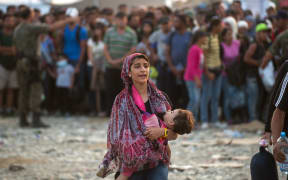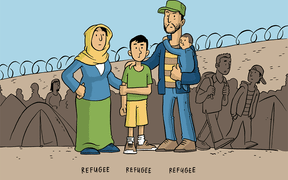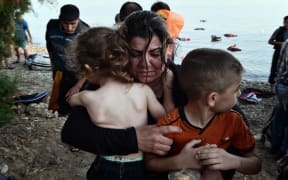A convoy of cars driven by German and Austrian activists has crossed into Hungary to pick up refugees and migrants and help them reach western Europe.
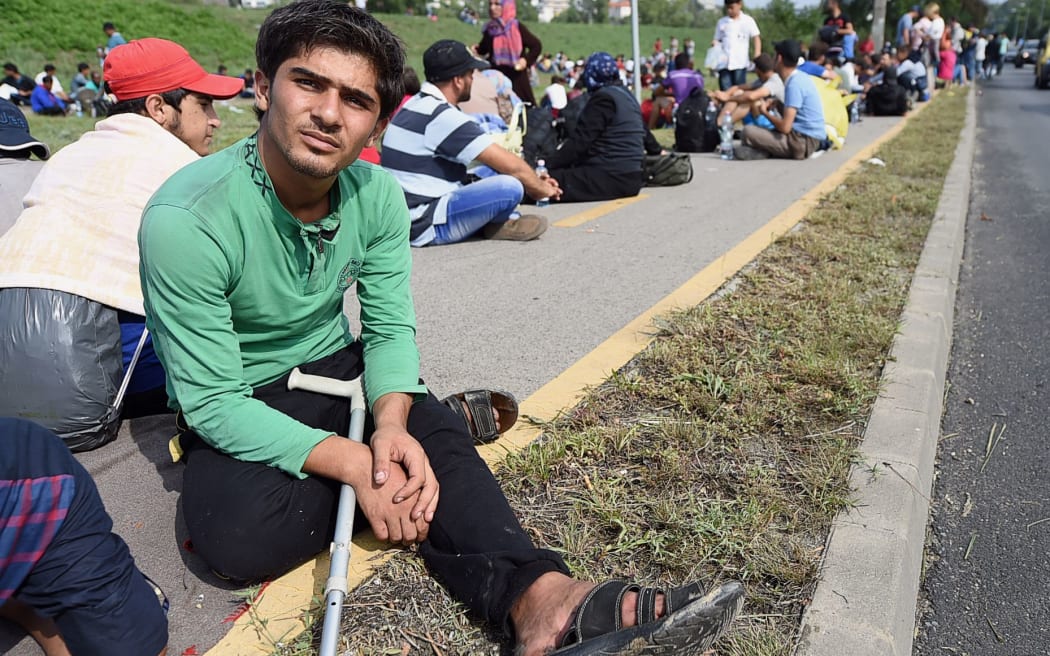
A group of about 500 refugees sits on the pavment next to the main road near Budaors, Hungary, as they head to the Hungarian-Austrian border. Photo: AFP
Thousands - many of whom initially fled conflict in Syria - have made their way through Austria since Hungary removed restrictions on transit on Friday.
Buses and special trains have been taking them from the Hungarian border to Vienna and on to Germany.
The Pope said every Catholic parish in Europe should host a refugee or migrant family.
Speaking during the Angelus prayer, Pope Francis appealed for "every parish, every religious community, every monastery, every sanctuary in Europe" to take in a family.
On Sunday a convoy of about 140 cars left Vienna for the Hungarian capital, Budapest, as part of a private initiative dubbed "refugeeconvoy"
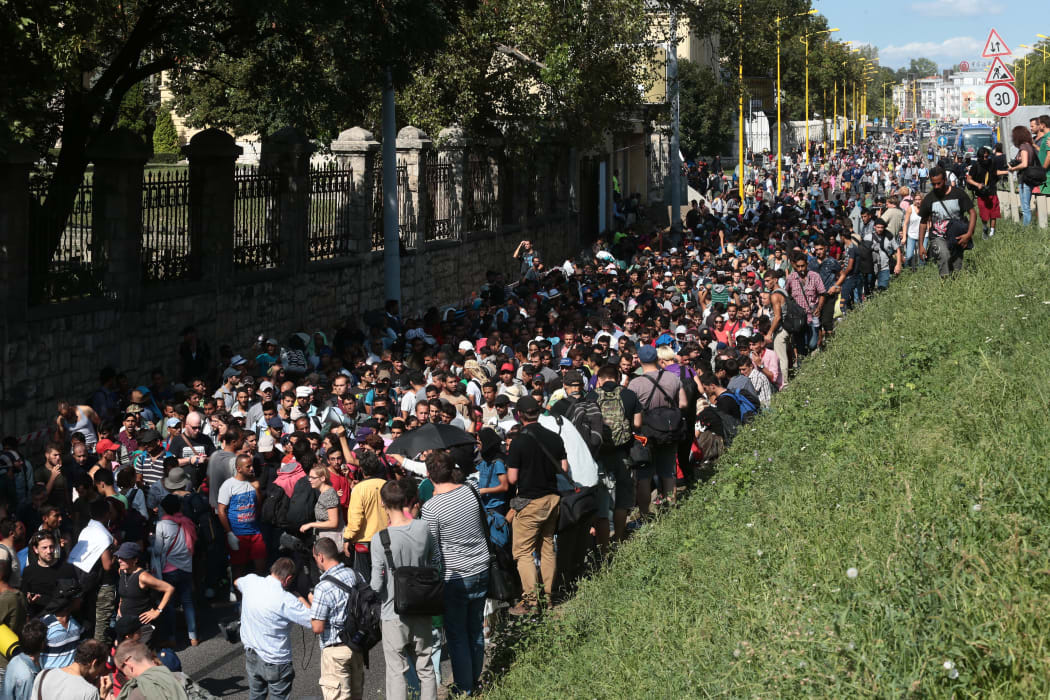
Hundreds of refugees and migrants - many from Syria - leave the transit zone of Budapest's main train staion for Austria on 4 September. Photo: AFP
One of the Austrian activists taking part, Angelika Neuwirth, told the BBC that their aim was to take them back to shelters in Austrian capital.
"I think this is my duty. I'm a mum, I'm a woman from Austria and I can't close my eyes anymore," she said. "We are all human. No-one is illegal."
However, Hungarian police spokeswoman Viktoria Csiszer-Kovacs said anyone taking refugees and migrants across the border was breaking the law.
Last week four Austrian activists who tried to do so were arrested for people smuggling but later released.
However, in the latest move a number of activists were able to collect refugees and migrants in Hungary without being stopped by police.
In other developments:
- German officials say 11,000 asylum seekers arrived in the country on Saturday, with another 10,000 expected on Sunday
- 114 migrants have been rescued from a fishing boat off Cyprus - Syrians bound for Greece
- UK Chancellor of the Exchequer George Osborne said Britain "needs to do even more" to help Syrian refugees
- David Miliband, a former British foreign minister who now heads the New York-based International Rescue Committee, urged the US to take in 65,000 Syrian refugees
After days of confrontation and chaos, Hungary opened its borders with Austria and bussed thousands of refugees and migrants to the frontier on Friday.
Many, frustrated at being prevented from boarding trains in Budapest, had begun to walk along a motorway towards Austria.
Many of the refugees and migrants had travelled north through the Balkans - Greece, Macedonia and Serbia - before arriving in Hungary.
Hundreds more crossed into southern Hungary from Serbia on Sunday, where they were taken to a processing centre.
Germany, Austria, and Hungary have said the decision to allow refugees and migrants through is aimed at averting a humanitarian crisis, and will not set a precedent.
"Now, step by step, we must move away from emergency measures to lawful and humane normality," Austrian Chancellor Werner Faymann reaffirmed.
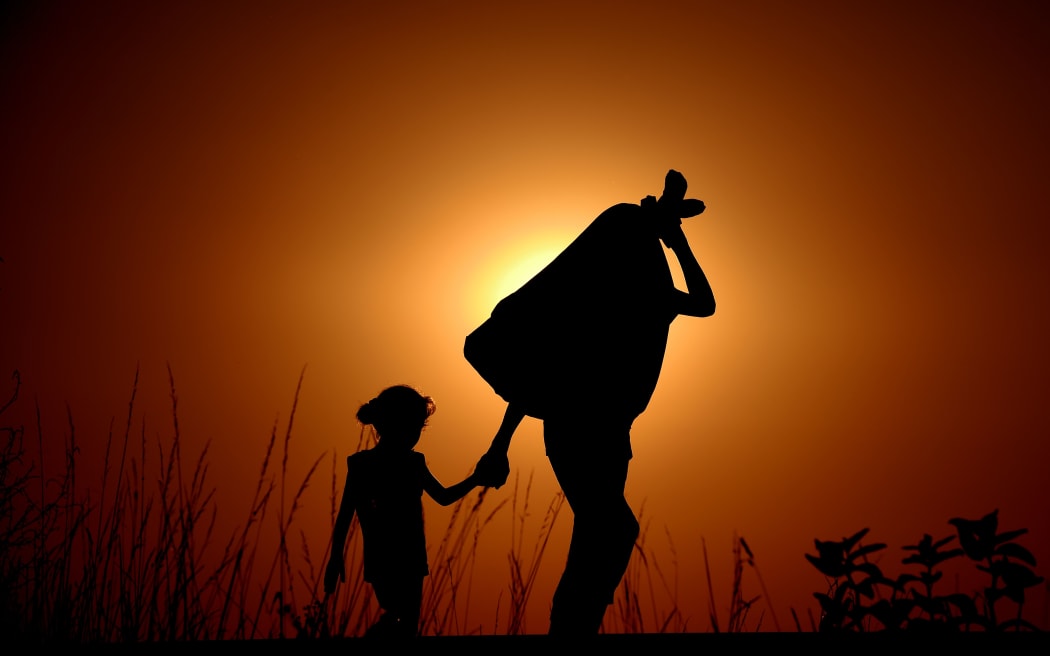
Syrian refugees and migrants along a railway line as they try to cross from Serbia into Hungary near Horgos. Photo: AFP
EU rules requiring refugees to apply for asylum in the first country they land in "are still valid", a German government spokesman said.
However, in August Germany waived the rule on asylum seekers from Syria, allowing them to register in Germany regardless of where they first entered the EU.
Germany expects to take in 800,000 people this year. Syrians are the largest group travelling, followed by Afghans and Eritreans.
- BBC
